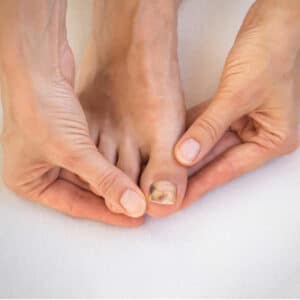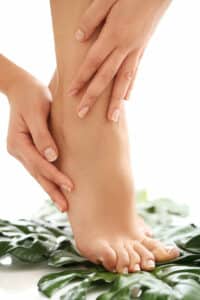
Welcome, readers, to another insightful blog post from Ruth, your trusted Foot Health Practitioner at Step Right Foot Clinic. Today, we delve into the world of two prevalent foot conditions that can cause significant discomfort: painful corns and thickened discoloured nails. Fear not, for I am here to shed light on these issues, discuss their prevalence, and explain how we, at Step Right Foot Clinic, can help you find relief.
Understanding Painful Corns:
Corns are a common foot problem that can affect individuals of all ages. These small, hardened areas of skin develop in response to pressure or friction, typically caused by ill-fitting footwear or repetitive actions. Corns usually manifest on the tops, sides, or tips of the toes and can be painful, especially when pressed.
The Troubles of Thickened Discoloured Nails:

Prevalence and Contributing Factors:
Both painful corns and thickened discoloured nails are widespread foot problems that affect a significant portion of the population. The prevalence of these conditions is attributed to various factors, including:
Addressing the Problems:

Conclusion:
Painful corns and thickened discoloured nails can significantly impact your quality of life, causing pain, discomfort, and self-consciousness. At Step Right Foot Clinic, we strive to alleviate these concerns and empower you to regain your foot health and confidence. Through our comprehensive assessment, personalized treatment plans, and expert care, we are dedicated to helping you overcome these foot afflictions. Don’t let foot problems hold you back; take the first step towards healthier feet by seeking professional assistance today.
Remember, dear readers, healthy feet are happy feet!
MAKE AN APPOINTMENT TODAY AT STEP RIGHT FOOT CLINIC
(remember we have 2 locations, New Ross and Waterford be sure to select the right one)
Disclaimer: The information provided in this blog post is for educational purposes only and should not be considered as medical advice. Please consult a qualified healthcare professional for personalised diagnosis and treatment options tailored to your specific needs.
We have 2 locations Waterford & New Ross,
PLEASE SELECT it during the reservation